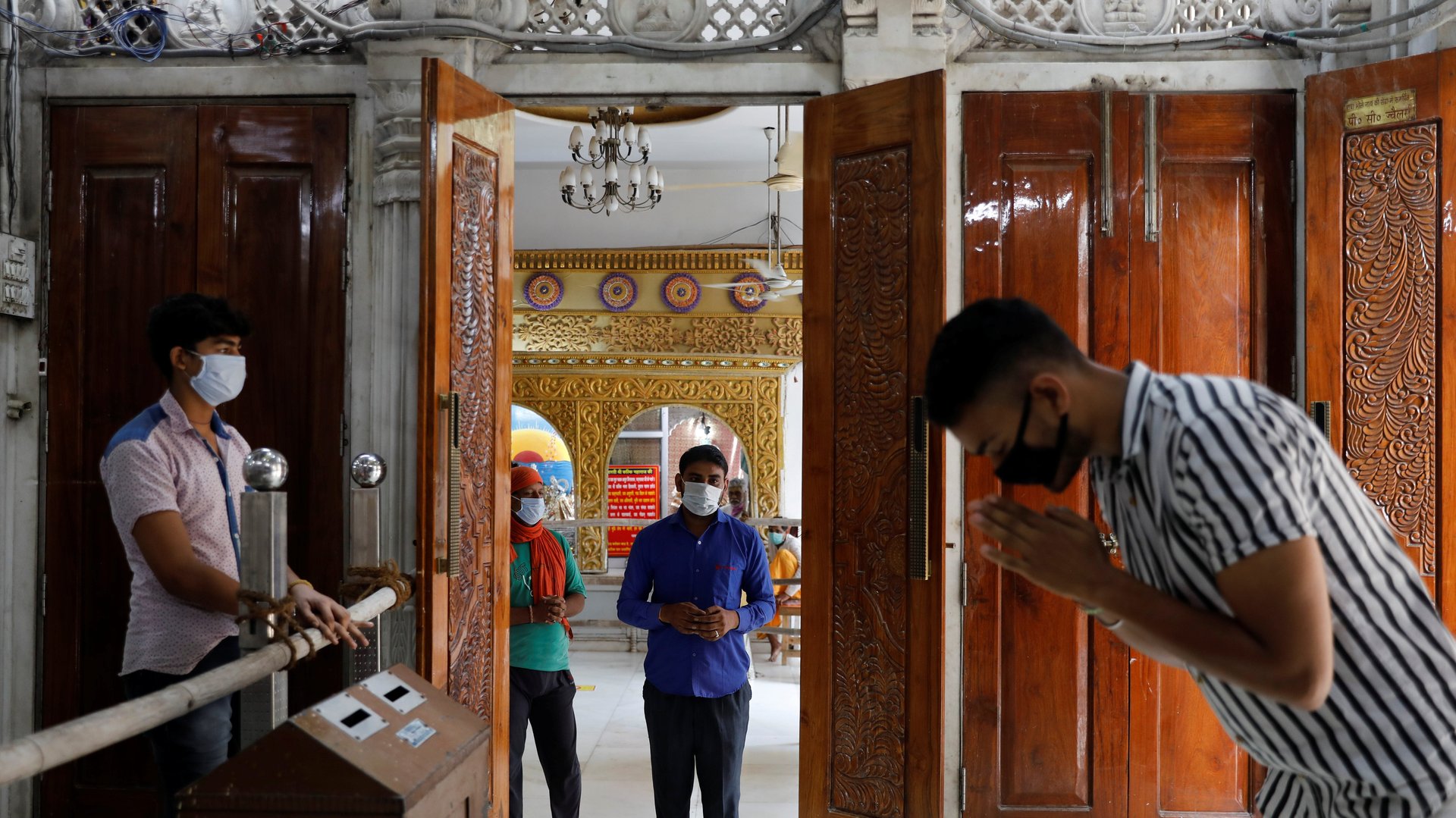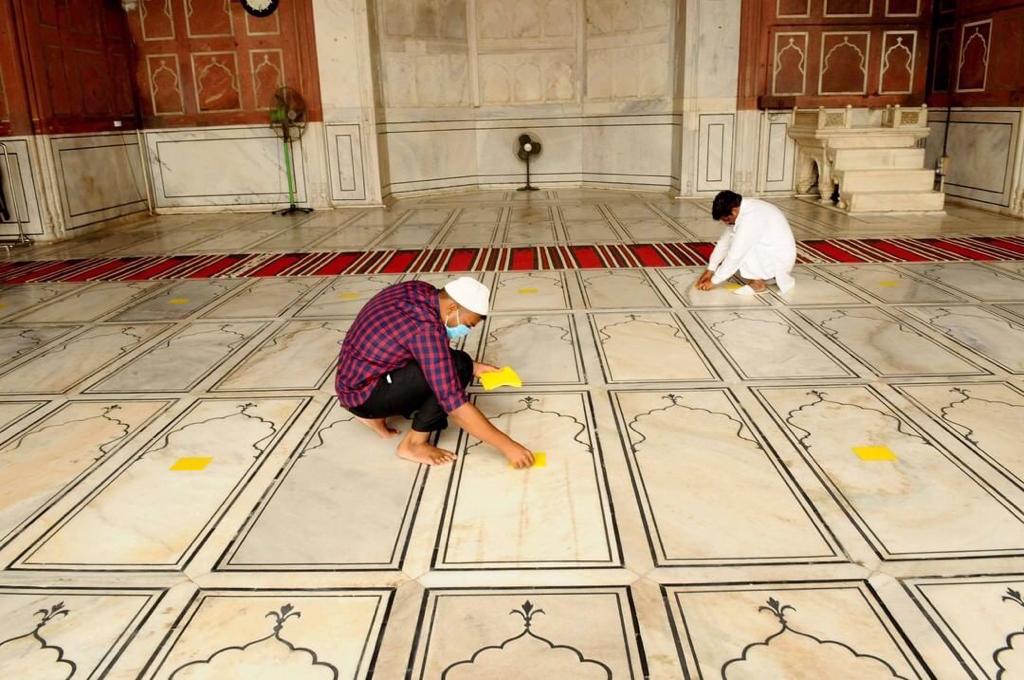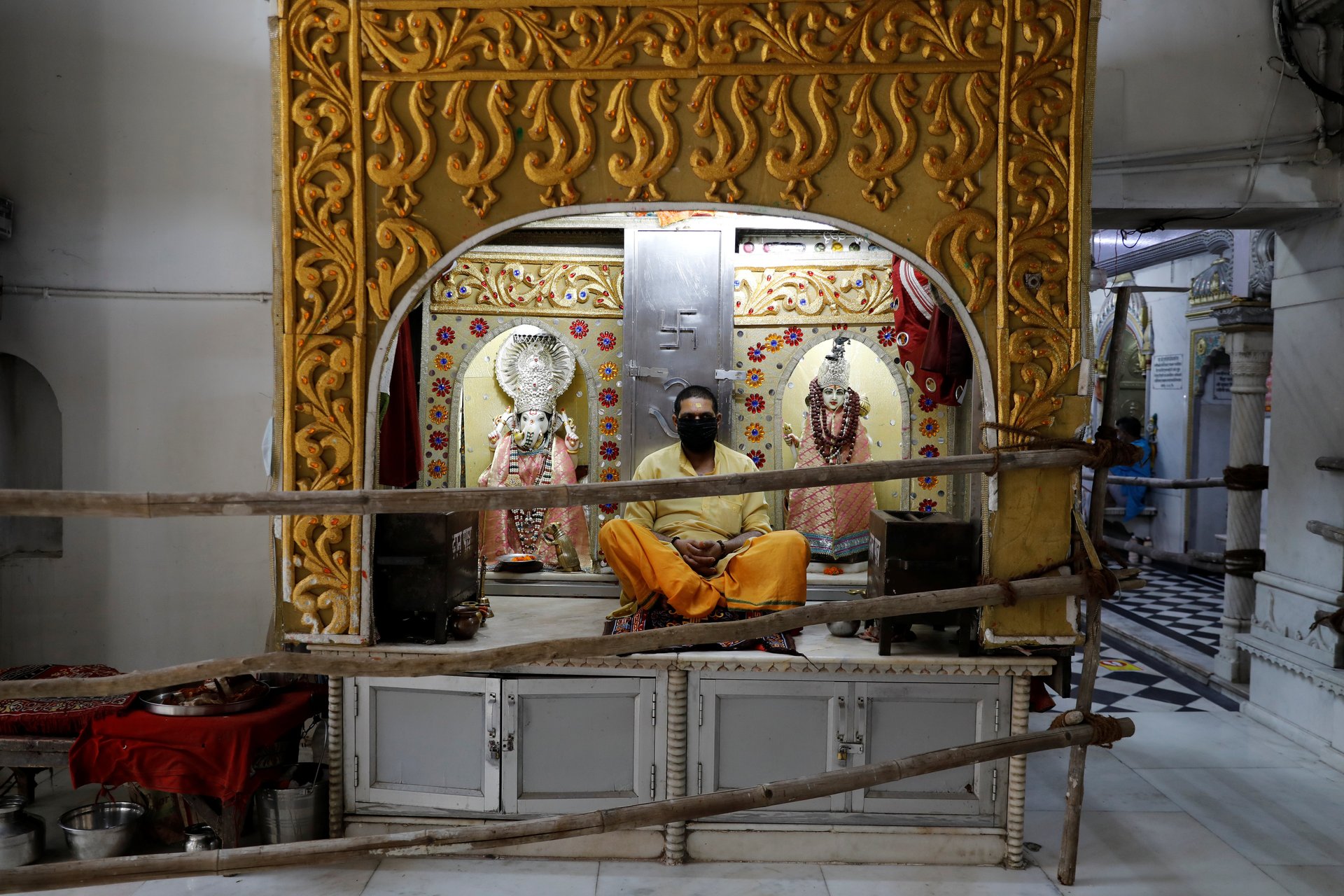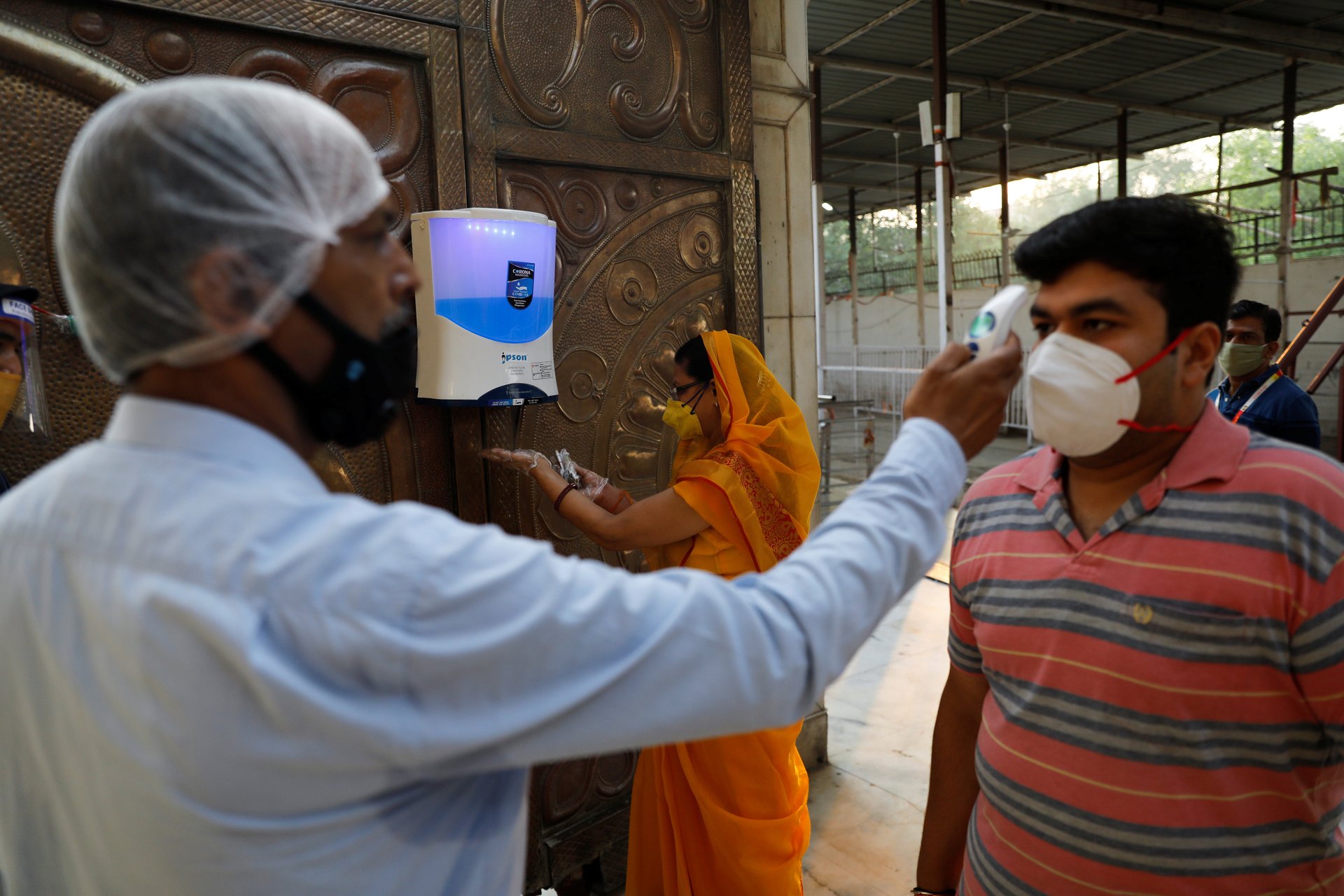India’s religious places are tweaking age-old traditions for safety as the pandemic rages on
Going to your place of worship includes gathering prayer beads, flowers, incense, prayer books—and now sanitisers and masks.


Going to your place of worship includes gathering prayer beads, flowers, incense, prayer books—and now sanitisers and masks.
As India enters “Unlock 1.0,” a phased lifting of the coronavirus lockdown, it has allowed religious places to open in India for the first time since March 25. But the joy of being able to visit one’s chosen place of worship works in tandem with the fear of contracting Covid-19.
Religious places in India, on their part, are armed with thermal scanners, sanitisers, and a bunch of changed protocols.
Some of these guidelines have been laid down by the government, while others are put in place keeping the practices of specific religions in mind.
Distant prayers
Social distancing is perhaps the most tricky aspect of managing crowds at temples, churches, mosques, and gurudwaras, especially during special occasions, festivals, and weekends.
Inside a mosque, for instance, the faithful offer prayers five times a day, often sitting close to one another. To manage this, the Jama Masjid in Delhi has made social distancing markings with yellow stickers in the prayer area. “While we have no restrictions on the number of people who should visit the mosque at a time, we now begin our prayers shortly after the azaan so that large crowds don’t gather,” explains Syed Shaban Bukhari, deputy shahi imam at the Jama Masjid.

Similar social distancing markings have been made at popular temples, including the Jhandewalan Mandir and Sai Baba Mandir in New Delhi. Such guidelines have also been followed at the country’s prominent churches and gurudwaras.
Changing traditions
Coronavirus has also forced priests and preachers across religions to rethink certain practices so as to reduce the risk of infection.
At most gurudwaras, the kadha prashad (a sweet pudding offered as being blessed by the guru) is distributed by hand, often symbolic of a spirit of a commune. The volunteers will now be wearing disposable gloves and using ladles instead, explains Hardeep Singh, Shiromani Gurdwara Parbandhak Committee’s independent member from Mohali in Punjab.
The government wanted places of religion to stop serving prasad, but that, Singh says, should be a call for people belonging to respective religious sects to make, such as prabandhak committees that oversee the management of gurudwaras across India. “Cooking involves heat, so that makes food safe to consume. The problem lies with the distribution, and we are taking all precautions to make it as safe as possible,” he says.
Several gurudwaras also offer langar, a community meal for any visitor of any religion as part of the tenets of Sikhism. Singh says gurudwaras will continue to feed the needy through food packets, the regular langar will be discontinued.
Hindu devotees will now have to be content without the vermillion dot that is placed on the foreheads by the priest. At the Jhandewalan Mandir in New Delhi, for instance, this will be discontinued until the pandemic exists. The Hindu temple has also tied off all bells at the entrance to avoid physical contact where possible, according to news agency ANI.

The Jama Masjid authorities have asked visitors to undertake the wuzu, a practice of washing one’s hands, feet, and face before prayers, at home instead of the mosque premises. Similarly, visitors would wash their hands using the taps present and dip their feet in a pool of water before entering a gurudwara. There will now be water jugs treated with antiseptic solutions for this.
“To follow the curfew guidelines, only those who are a part of our institution will offer early morning and late-night prayers at the mosque. Devotees have been asked to offer their prayers at home for these two occasions,” Bukhari explains.
Scrubbed clean
Though masks are compulsory inside all religious places, administrative staff will also carry out regular sanitisation of their premises before and after people visit. The Jama Masjid, for instance, has a dedicated sanitisation machine for this purpose.
Mosques and gurudwaras have also removed mats from different spots to avoid contamination. While mosques have asked visitors to bring their own prayer mats for the namaaz, the gurudwaras will only have mats in the walkway. Inside the sanctum sanctorum, the white sheets will be washed and replaced daily, and fewer people from the gurudwara will be allowed to touch the fan brush, according to Singh.

These measures are over and above the alcohol-based hand sanitisers that will be made available at different spots at these religious places. Jama Masjid has also placed a request for sanitiser dispensers that are operated with a foot pedal. All these places will also use thermal scanners to screen visitors.
The Jama Masjid, though, may shut down again after a staffer lost his life to Covid-19. The staffer had not visited the mosque in over 20 days, but the authorities are likely to err on the side of caution.